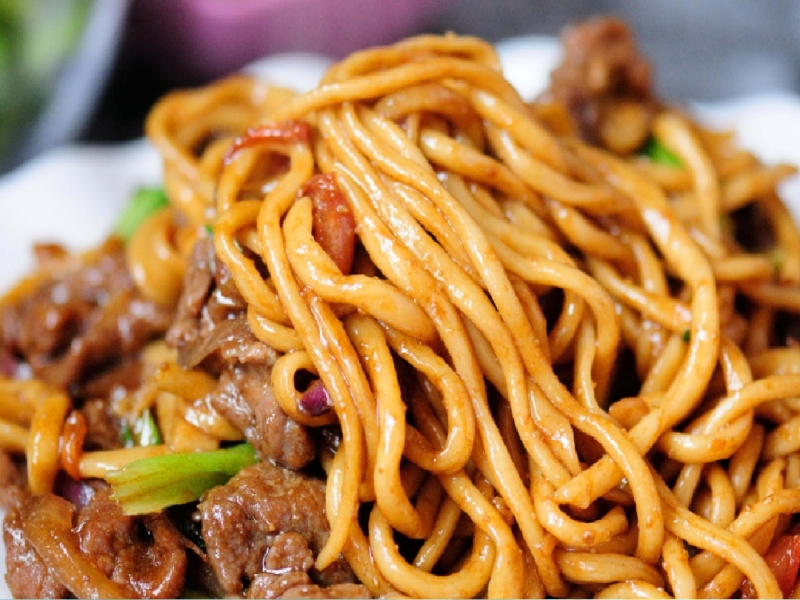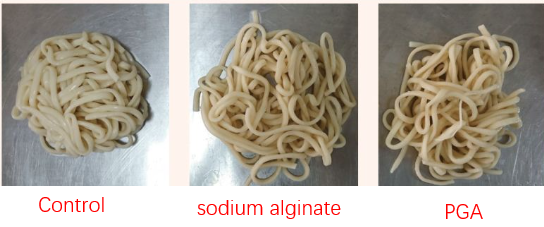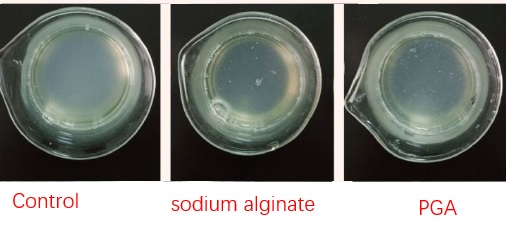
Propylene Glycol Alginate Uses in Noodles
Wonderful Application of Propylene Glycol Alginate PGA in Noodles
Are you still bothered by your delicious noodle soup?
Are you still annoyed that your noodles are soft and chewy?
Are you still depressed about your noodles sticking to your teeth?
As a noodle savior, propylene glycol alginate can effectively improve the taste of noodles, and is favored by the majority of food processors.
How it does it, let's find out:
Anti-clumping effect display
1. steps:
100g flour → sodium alginate/PGA→dough mixing→wake up→dough pressing→dough cutting to make noodles→wake up→noodles cooking→standing→Inspection, observation and statistics of sticky noodles with anti-tack performance

2. results:
It can be seen from experiments that sodium alginate and PGA can effectively prevent lumps. Sodium alginate & propylene glycol alginate can increase the gluten value and cross-linking degree of gluten, thereby increasing the network structure of gluten, reducing the surface viscosity of noodles, enhancing the stability of dough, and making noodles refreshing and not sticky.
Mechanism of anti-clumping
1. steps:
100g flour→0.2% sodium alginate/PGA→dough mixing→wake up→dough pressing→dough cutting to make noodles→wake up→500g water to cook the noodles→50g water to wash noodles, dilute to 500g→observation

(2) Results:
It can be seen from experiments that the water for cooking noodles with sodium alginate and propylene glycol alginate is relatively clear, which can effectively prevent starch dissolution. Sodium alginate and propylene glycol alginate have a thickening effect, can improve the dough structure, effectively reduce the dissolution of starch on the surface of noodles, and reduce the ratio of noodle soup.
Summary of the advantages of propylene glycol alginate uses in noodles
Increase the smoothness of noodles
Reduce the sticky taste of ordinary noodles
Increase the firmness of noodles, more chewy, not soggy
Increase the elasticity of noodles and make noodles more tenacious
Reduce the dissolution rate of noodle starch, and it can be boiled without muddy soupReduce noodle breakage rate and make noodles more complete
